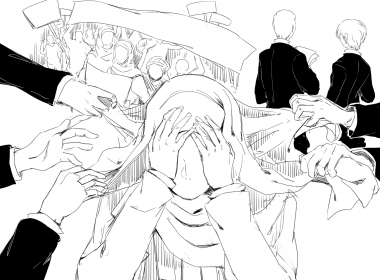This past week, several professors from McGill donned some of the religious symbols that the Parti Québécois (PQ) has deemed ‘ostentatious’ in protest of the proposed Quebec Charter of Values. This charter would forbid public sector employees, including university professors, from wearing such symbols. Among those falling under sanction are turbans, hijabs, kippahs, and large cross necklaces—small jewelry, however, would be allowed. Last week, political science professor Catherine Lu organized a campaign with University of Montreal professor Marie Joelle-Zahar that called for professors to wear these symbols in classes starting on Sept. 12
Search Results for ""Stefan Novakovic""
True neutrality cannot be imposed
At first glance, there may be much to applaud in the “Charter of Values.” Its claims to reinforce gender equality and religious state neutrality are commendable. In such a culturally diverse society, remaining neutral prevents the state from favouring any particular group over others, allowing it to view all faith groups and communities on equal footing. In this sense, the state upholds its principle of freedom of religion, protecting and preserving the beliefs and rights of expression of its citizens regardless of faith or lack thereof. In addition, providing equal job opportunities for both men and women, with equal pay and benefits, will improve social justice and bolster the economic well being of Quebec families and individuals.
Charter represents state-sponsored social division
A Protestant colleague of mine recently noted that the proposed charter seems to fly in the face of a crucial lesson we hope all children learn: thou shalt not judge by one’s appearance. Hopefully one doesn’t judge others at all, but especially not by what they look like. This is precisely what the proposed charter asks us to do. We are called to look at a Muslim woman wearing a hijab, a Jewish man wearing a kippah, and think “I know you; I know that you are not smart enough or moral enough to be able to serve me the same as your fellow co-religionists. Therefore I fear that you, without knowing you, are secretly working against the cohesion of society.” In Christianity, we are reminded to avoid such actions: “Judge not, lest you be judged.” In secular society the same idea takes a different form: “innocent until proven guilty.”





